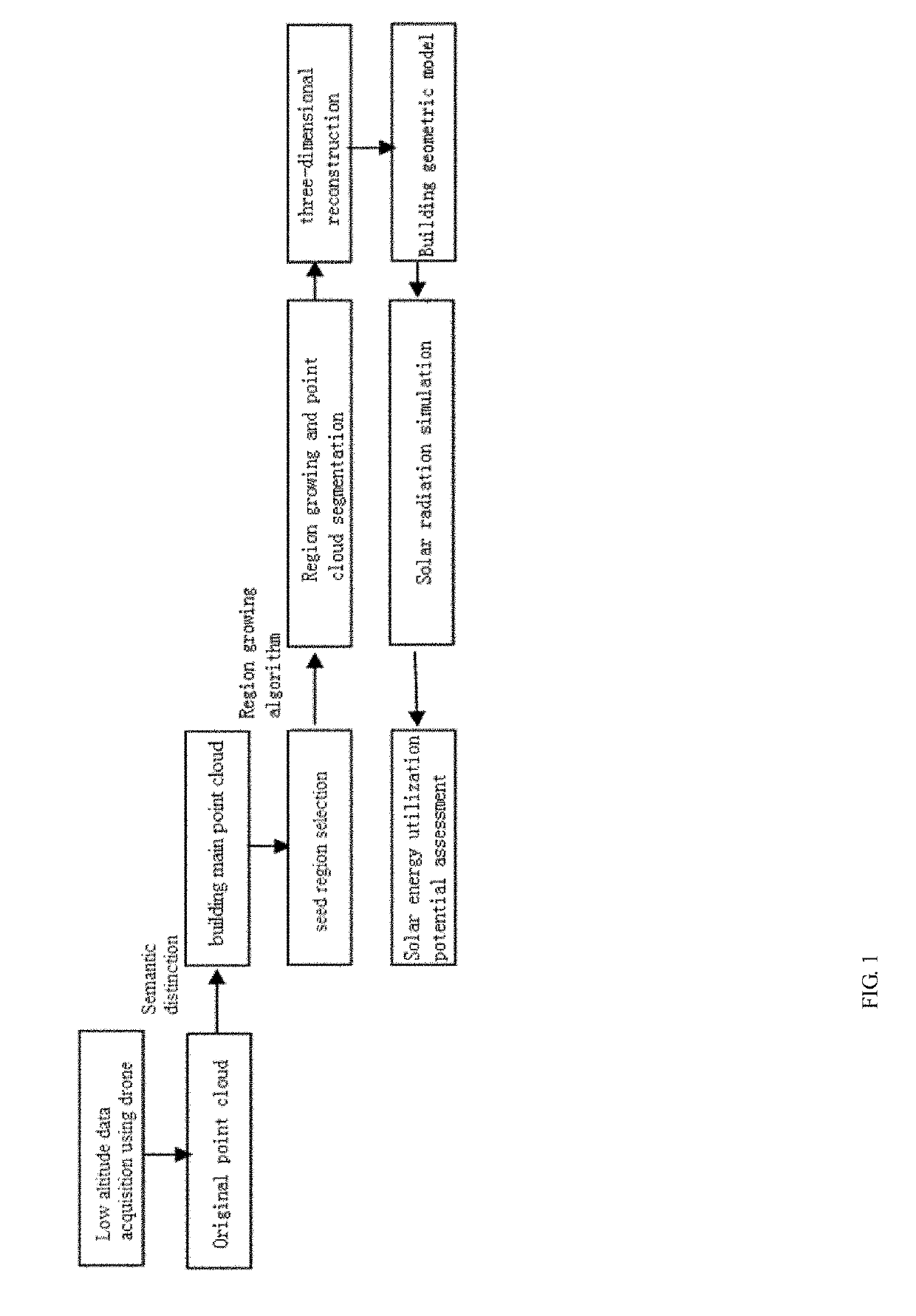Evaluation Method of Solar Energy Utilization Potential in Urban High-density Areas Based on Low-altitude Photogrammetry
a solar energy utilization and high-density area technology, applied in the field of solar energy utilization potential assessment, can solve the problems of low analysis efficiency, uneven distribution of solar radiation on the surface of buildings, and difficult to cope with simple investigations and subjective calculations, so as to achieve the survey area of three-dimensional information quickly and efficiently, avoid high time-consuming, and avoid the effect of manual operation low efficiency
- Summary
- Abstract
- Description
- Claims
- Application Information
AI Technical Summary
Benefits of technology
Problems solved by technology
Method used
Image
Examples
Embodiment Construction
[0025]The technical solution in the embodiments of the present invention will be clearly and completely described below with reference to the accompanying drawings in the embodiments of the present invention. Apparently, the described embodiments are merely some but not all of the embodiments of the present invention. All other embodiments obtained by a person of ordinary skill in the art based on the embodiments of the present invention without creative efforts shall fall within the protection scope of the present invention.
[0026]The invention utilizes low-altitude photogrammetry to obtain point cloud data in a high-density area of the city, and performs semantic division and three-dimensional reconstruction on the point cloud data through a parameterization tool to obtain a singular geometric model, so as to simulate and analyze the magnitude and dynamic changes of solar energy utilization potential obtained from the roof and facade of building in the same platform.
[0027]FIG. 1 il...
PUM
 Login to View More
Login to View More Abstract
Description
Claims
Application Information
 Login to View More
Login to View More - R&D
- Intellectual Property
- Life Sciences
- Materials
- Tech Scout
- Unparalleled Data Quality
- Higher Quality Content
- 60% Fewer Hallucinations
Browse by: Latest US Patents, China's latest patents, Technical Efficacy Thesaurus, Application Domain, Technology Topic, Popular Technical Reports.
© 2025 PatSnap. All rights reserved.Legal|Privacy policy|Modern Slavery Act Transparency Statement|Sitemap|About US| Contact US: help@patsnap.com

